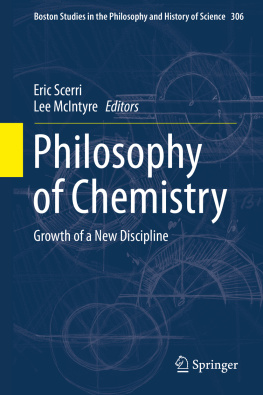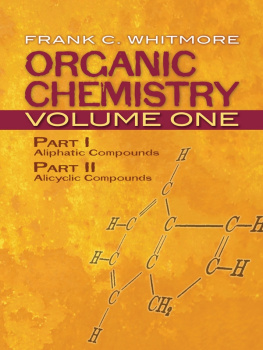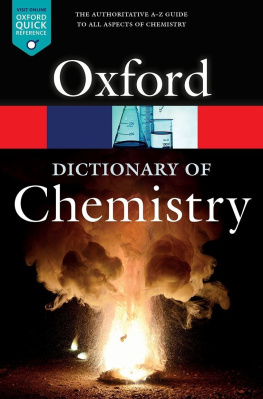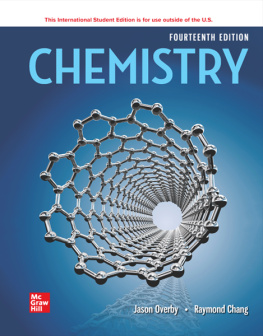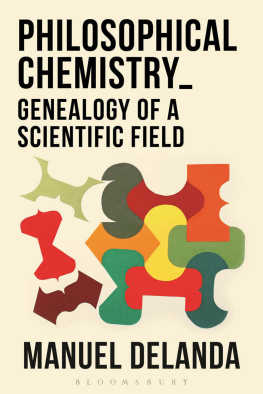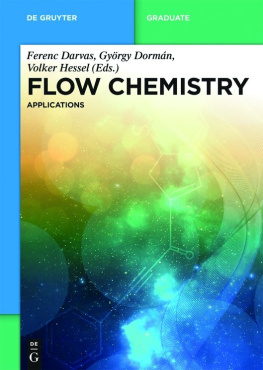1. Introduction
It has now been exactly 10 years since the first edition of this volume, Philosophy of Chemistry: Synthesis of a New Discipline (Springer 2006) co-edited with Davis Baird first appeared as Volume 242 of the Boston Studies in the Philosophy of Science series. At that point, the philosophy of chemistry was still an emerging field. Coincidentally it is also 20 years since the two editors of the present volume met at the biennial gathering of the Philosophy of Science Association in 1994 and began a collaboration that resulted in an article which remains the most cited one in the field. Moreover there has been an increased circulation of the journals Foundations of Chemistry and Hyle; the appearance of numerous books and articles in other venues; and finally the appearance of the present volume.
It seemed only appropriate that in considering a second edition of Philosophy of Chemistry , we kept with the founding principle of our earlier book, which was to gather in one place a wide range of new essays in the discipline, comprehensive in scope and written by some of the most eminent scholars in the field, to plant a flag indicating not only how far the field has come but where it might be going as well. In recognition of this growth, it is important to point out that over the last decade the philosophy of chemistry has become an increasingly international discipline, drawing special attention from Latin America. Toward the end of the last decade, our publisher came to us with a proposal to translate Philosophy of Chemistry into Spanish and we were proud to see Filosofia de la quimica appear in 2012. It is our hope that the present volume will match this recognition and perhaps even surpass it by being translated into other languages as well.
A good deal has happened in recent years, including greater acceptance from both the chemistry and the philosophy of science communities. Of course much remains to be done and we hope that this volume will continue to stimulate scholars and educators within these larger fields as well as those within the philosophy of chemistry itself. We cannot deny that a gulf still remains between chemists and philosophers. Chemists favor dwelling on specific details and are seldom quite so interested in the big picture or in reflecting on what their theories and findings generally might mean. At the same time philosophers tend to favor grand generalizations which sometimes means ignoring the grubby details of chemical research. There is always the danger that the philosopher might not have a sufficient understanding of the technical details and might not therefore be taken very seriously by the chemist. This is why continued cross-fertilization and criticism from both sides remains essential to the growth of the field.
In considering a second edition, it was one of our contributors who suggested that we refresh the subtitle substituting growth for synthesis such that the present volume recognizes a link with its past, but moves beyond celebrating a beginning, now that we are two decades out from the founding of the field. Indeed, within these pages readers will find one of the surest signs of maturity in any field: controversy.
One of the most hotly debated questions in the philosophy of chemistry in recent years concerns whether it makes sense to say that chemistry is ontologically autonomous from physics. In her paper The Ontological Autonomy of the Chemical World: Facing the Criticisms, Olimpia Lombardi considers and responds to criticisms that were generated by her earlier paper, in which she put forward the thesis that there is a potentially ontological break between chemical and physical phenomena. Both fans and foes of reductionism were thus provoked into action some claiming that of course chemistry is reducible to physics and others that this particular defense of autonomy gave too much fodder for those who would see any kind of emergence claim as spiritual nonsense generating some of the most interesting scholarship to come out of the philosophy of chemistry in recent years.
The previous volume included articles on Aristotelean chemistry, Kants views on chemistry, and the normative-descriptive dimension in philosophy of science. There were articles on chemical modeling, ethics in chemistry, downward causation, the reduction of chemistry and chemical symmetry. More specific issues included periodic systems of molecules, the computer-aided design of molecules and instrumental techniques used in surface chemistry. Finally some more obviously philosophical papers dealt with natural kinds in chemistry, whether or not water is H2O and the relationship between metaphysics and meta-chemistry.
By contrast the new volume does not repeat any of these topics with the possible exception of the perennial topic of reduction of chemistry to quantum mechanics, but this time by Hinne Hettema, one of the newcomers to the field who did not appear in the earlier volume. Olimpia Lombardi writes about a related topic, that of the ontological autonomy of the chemical world as mentioned above. Another newcomer, Alexandru Manafu, proposes a novel approach to another related issue, that of emergence in chemistry.
There follow three articles by authors who did appear in the earlier volume. Joachim Schummer, the editor of the journal Hyle is the author of The Methodological Pluralism of Chemistry and Its Philosophical Implications. Joseph Earley, turns from symmetry in chemistry to Pragmatism and the Philosophy of Chemistry. Paul Needham turns from ancient chemistry of Aristotle to a discussion of One Substance Or More?
All the remaining authors did not appear in the earlier volume. Rom Harr, the distinguished philosopher, and honorary president of the International Society for the Philosophy of Chemistry, is the author of Mereological Principles and Chemical Affordances. Farzad Mahootian, writes about metaphor in chemistry and takes up another major theme in recent writing in the field, namely the philosophical nature of the concept of an element. Marina Banchetti-Robino, is the author of many historical-philosophical papers including some on Boyle. In the present volume she examines the move from corpuscles to elements from the writing of van Helmont to Lavoisier. Pieter Thyssen and Koen Binnemans take up another major theme, that of chemical periodicity. Their article examines a particular aspect that proved especially difficult for Mendeleev, namely the accommodation of the rare-earth elements into the periodic table. Although Klaus Ruthenberg, cannot be said to be a newcomer to the field he was inexplicably absent from the earlier volume. This time he was not able to escape and has contributed a study on free radicals in chemistry and the question of realism. Grant Fisher, with whom one of us is currently editing another collection of papers, examines the meaning of ceteris paribus clauses in chemistry.
Our hope is that within this volume, one will find a wide range of scholarship, which represents the best of the philosophy of chemistry. We trust that in the coming decade our field will continue to grow and prosper and that by now it has earned a place at the table in this series. May we anticipate another Boston Studies volume on the philosophy of chemistry in ten (or perhaps fewer?) years time? If so, the title may already be up for grabs.

